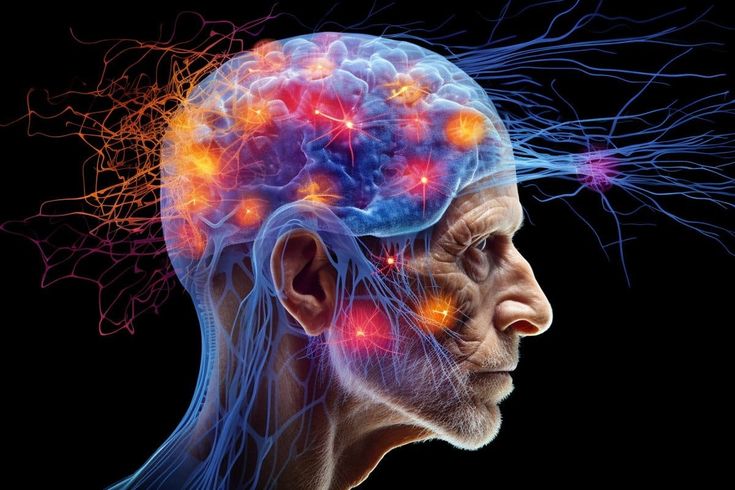
Understanding Motor Neurone Disease
What is Motor Neurone Disease?
Motor Neurone Disease (MND), also known as Amyotrophic Lateral Sclerosis (ALS), is a progressive neurodegenerative disease that affects nerve cells in the brain and spinal cord. These nerve cells, called motor neurons, control voluntary muscle movements, such as walking, talking, and breathing. As MND progresses, the motor neurons degenerate and die, leading to muscle weakness, paralysis, and eventually respiratory failure. There is currently no cure for MND, and the disease is usually fatal within 2-5 years of diagnosis.
Causes and Risk Factors
The exact cause of MND is unknown, although several factors may contribute to its development. Genetic mutations, exposure to environmental toxins, and abnormal protein metabolism are believed to play a role in the onset of the disease. While MND can affect anyone, certain risk factors such as age, family history of the disease, and gender (men are slightly more likely to develop MND) may increase the likelihood of developing this condition. Early diagnosis and symptom management are crucial in improving the quality of life for individuals living with MND.
Types of Motor Neurone Disease
Amyotrophic Lateral Sclerosis (ALS) | Progressive Bulbar Palsy (PBP)
Motor Neurone Disease (MND) encompasses various types, all characterized by the degeneration of motor neurons that control voluntary muscle movements. One common form is Amyotrophic Lateral Sclerosis (ALS), where the motor neurons in the brain and spinal cord deteriorate, resulting in muscle weakness, paralysis, and impaired speech and swallowing. Another type is Progressive Bulbar Palsy (PBP), affecting the motor neurons responsible for speech and swallowing, leading to slurred speech, difficulty swallowing, and muscle wasting in the face and throat.Individuals diagnosed with ALS typically experience a progressive decline in muscle function, impacting everyday activities. On the other hand, those with PBP may encounter challenges specifically related to speech and swallowing functions. While the specific symptoms and progressions vary between MND types, the overarching outcome is a loss of motor function and eventual respiratory failure.Understanding the different types of MND is crucial for early detection, personalized treatment plans, and improved quality of life for patients and their families. Research into these various forms of MND is ongoing to find effective treatments and ultimately a cure for this devastating neurodegenerative disease.
Symptoms and Progression of Motor Neurone Disease
Early Signs and Symptoms | Disease Progression Over Time
Individuals diagnosed with Motor Neurone Disease (MND) face a range of symptoms and challenges that impact their daily lives. One of the primary concerns is detecting the early signs and symptoms to initiate timely interventions. Early indicators of MND may include muscle weakness, twitching, cramps, and difficulty walking or holding objects. As the disease progresses, these symptoms worsen, affecting speech, swallowing, and eventually respiratory function.The progression of MND varies between individuals and its types. For some, like those with ALS, the decline in muscle function is rapid, leading to paralysis and loss of motor control. Patients with PBP may first notice slurred speech and swallowing difficulties, which can gradually worsen over time. As the disease advances, individuals with MND require specialized care and support to manage symptoms and maintain quality of life.Understanding the trajectory of MND from its onset to later stages is vital for healthcare professionals to tailor treatment plans and support systems that address the evolving needs of patients and their families. Ongoing research endeavors seek to enhance treatment options and ultimately discover a cure for this complex and debilitating condition.
Diagnosing Motor Neurone Disease
Medical History and Physical Examination | Tests and Investigations
Blog Section:When it comes to diagnosing Motor Neurone Disease (MND), healthcare professionals typically start by taking a detailed medical history and conducting a thorough physical examination. By reviewing symptoms and potential risk factors, doctors can better assess the patient’s condition and the course of the disease. During the physical examination, they may observe muscle weakness, twitching, or other signs that could indicate MND.Following the initial assessment, healthcare providers may order a series of tests and investigations to confirm the diagnosis and rule out other possible conditions. These tests may include electromyography (EMG), nerve conduction studies, blood tests, MRI scans, and muscle biopsies. Through these diagnostic procedures, doctors can gather more information about the extent of motor neurone damage and the progression of the disease.Accurate and timely diagnosis of MND is crucial for developing appropriate treatment plans and support strategies for patients. By understanding the specific challenges and needs of individuals with MND, healthcare teams can provide personalized care that enhances quality of life and offers the best possible outcomes for patients and their families.
Also Read: Comprehensive Guide to Nervous System Disorders: Symptoms
Treatment Options for Motor Neurone Disease
Medications and Therapies | Supportive Care and Managing Symptoms
Blog Section:When it comes to treating Motor Neurone Disease (MND), healthcare professionals offer a range of options to manage symptoms and improve the quality of life for patients. Medications and therapies play a crucial role in addressing various aspects of the disease. Medications such as Riluzole may be prescribed to slow down the progression of MND and provide some relief. Physical therapy, occupational therapy, and speech therapy can help maintain muscle strength, improve mobility, and address communication difficulties.In addition to medications and therapies, supportive care is essential in managing MND. Healthcare teams focus on symptom management, pain relief, and emotional support to enhance the well-being of patients. Strategies for managing symptoms like muscle cramps, difficulty swallowing, and respiratory issues are tailored to meet individual needs.By combining medications, therapies, and supportive care, healthcare providers can create comprehensive treatment plans that aim to alleviate symptoms, maintain function, and enhance the overall quality of life for individuals living with MND.
